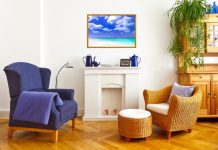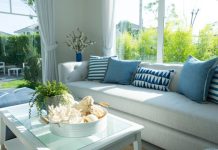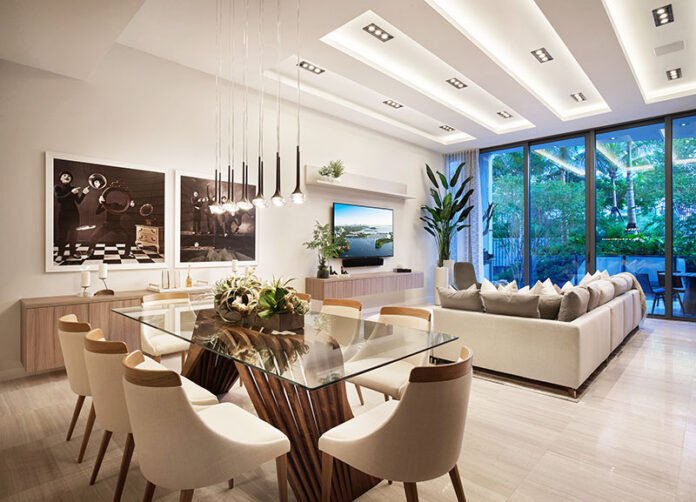
From its Art Deco roots to today’s glistening glass skyscrapers, Miami has always been a playground for cutting-edge design. And few have mastered the Magic City’s forward-thinking design perspective like Brian Dumervil, a lead interior designer at Interiors by Steven G.
Though a Canadian transplant, it didn’t take long for the Montreal native to adapt to the contemporary oasis in the sunshine—perhaps because of his own Caribbean heritage (his mother hails from Trinidad and Tobago, while his father has roots in Haiti). “The culture is so mixed down here,” notes Dumervil. “I think what helps with my background is just my openness to different ways of thinking and different ways of life.”
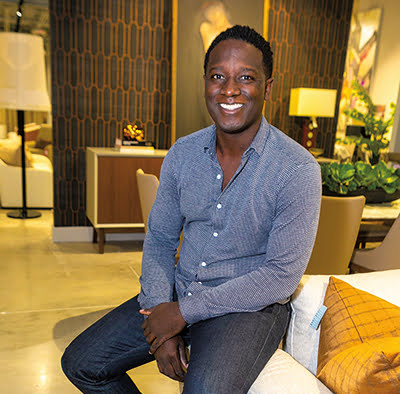
He certainly tapped into this Miami interior design sensibility when working a model condo project at Park Grove—the luxe residential tower project in Coconut Grove. Inspired by the property’s tropical foliage and stunning views of the bay, “we wanted to bring the outside in, so we kept the palette neutral” says the designer. The result is a medley of warm whites and silvery grays framing the greenery outdoors. Rich walnut finishes used throughout also introduce organic qualities into the streamlined space.
To add dimension to the new build, he incorporated additional interior architectural features, like the LED-illuminated troughs highlighting the 11-foot-tall ceiling. Textured statement features like the detailed wall millwork in the great room were also installed—a distinctive feature in Dumervil’s work. “I really believe that the architectural background is important to focus on first and foremost,” he explains. “So I like to treat our feature walls with something so they can hold their own within the space. We want to make sure that we have the canvas to display our furnishings.”
When selecting these pieces, the designer also kept true to the contemporary architecture with modern Italian designs that “were contemporary, but comfortable. This allows us to focus more on the texture, accessories and artwork.”
Dining Room
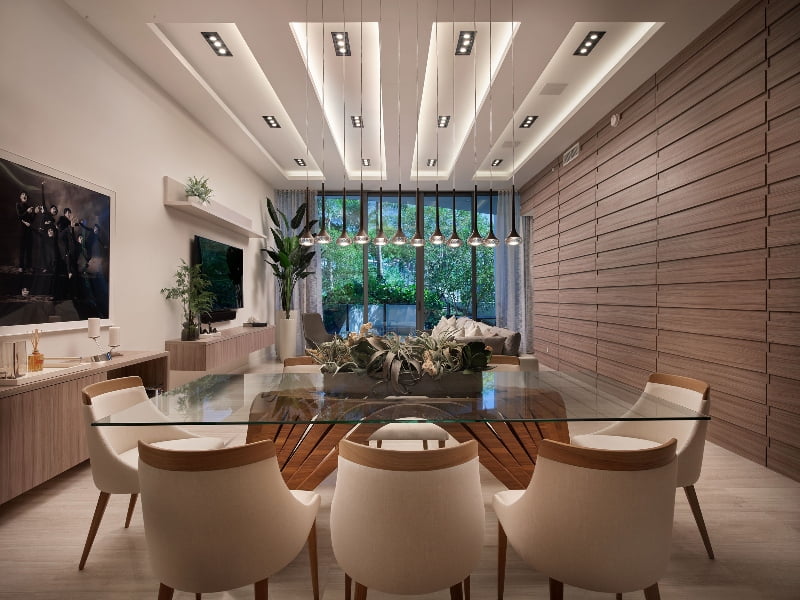
When entering the great room, “the dining area is the first thing you see,” notes Dumervil. To attract the eye immediately, “I knew I wanted something sculptural for the base of that table.”
This wave-like design fits the brief perfectly, accentuated with a glass top. He continued the warm walnut finish along the trim of the dining chairs “to tie everything together.” To preserve sight lines throughout the space, he chose a linear lighting fixture “that wouldn’t interfere with the view.”
Living Room
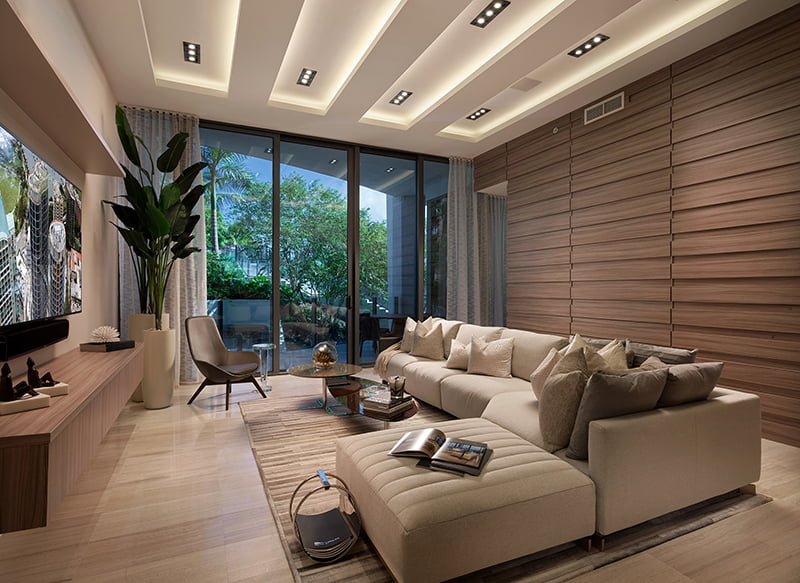
The designer carved out cozy intimacy for the main seating area with the large striped area rug. “It’s very important to anchor your furniture with a correctly scaled area rug to distinguish the space from everywhere else,” explains Dumervil. “In South Florida, we use a lot of hard surfaces. But if you’re lounging in your living room, you want something soft under your feet. So we made sure to have the rug run to the edge of the sofa.”
He also kept the modular sectional restrained, adding patterns and texture with throw pillows. This “allows the homeowners to change the look easily by replacing accessories.”
Bedroom
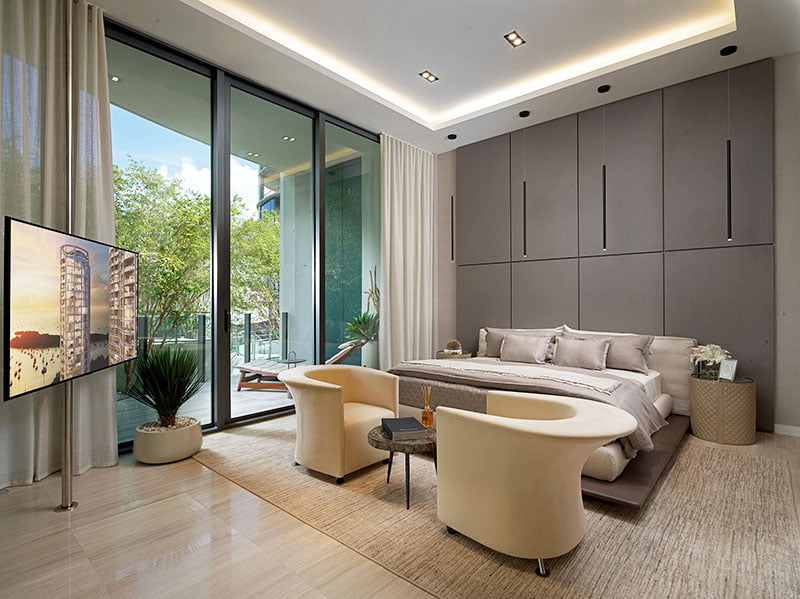
Sleek contemporary lines continue in the master bedroom, featuring the designer’s signature floor-to-ceiling paneling instead of a conventional headboard. Though preserving the bed’s low-profile, Dumervil also maintained “a minimum standard height for comfort” with a raised frame and platform. To complete the space, he added sculptural club chairs with a u-shaped silhouette. “Because they float in front of the bed, it was important to have some character in the piece.”
Den
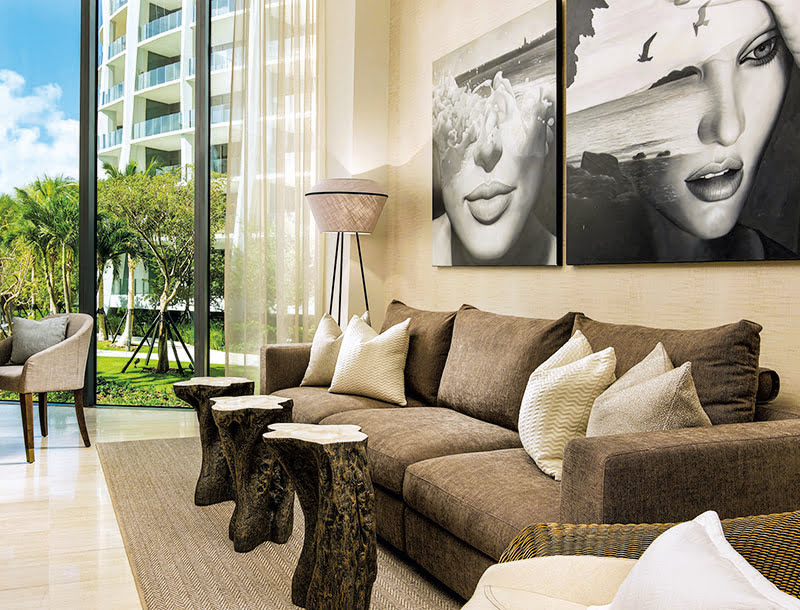
Even in this massive apartment, economical use of square footage is always crucial. This inspired the den area to serve as “flexible space,” says Dumervil. “Considering how the room needs to function is so important.” By day, this room serves as a lounge area. Instead of a cumbersome coffee table, three tree stumps transformed into cocktail tables. This provides the same functionality with a slimmer footprint. The trunks help “bring more notes of nature into the apartment.” They are also easy to move at night, giving way for the sleeper sofa to be converted into a bed.


























